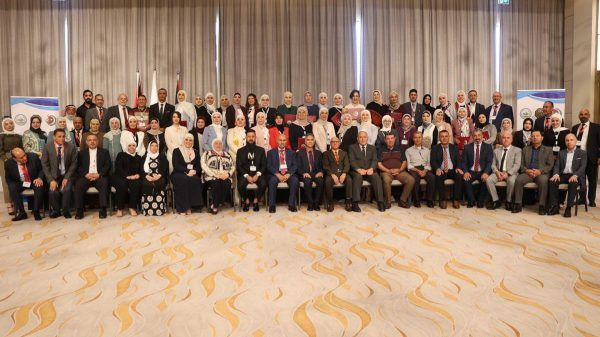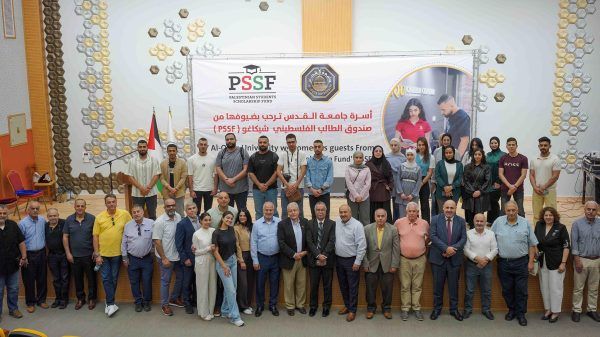
After reviewing and discussing the MBA thesis on the demand for organic products the examining committee decided to award Mr. Hasan Abu Latifa, who’s currently an employee at SKITCE, the master’s degree in Business Administration. The thesis is entitled “The Demand Management of Improved Environmentally Friendly Household Organic Food in West Bank: Choice Experiment Method”.
The committee consisted of: Dr. Ibrahim Awad from Al-Quds University as the major supervisor, Prof. Mahmoud K. Eljafari “Director of the Institute of Business and Economics at Al-Quds University” as an internal examiner, and Prof. Arne Hallam "Associate Dean at Iowa State University, Ames , USA" via Skype as an external examiner.
It is worth mentioning that Prof. Arne has indicated the attendants that the empirical results of the thesis could be published in international Journal, where modern and advanced econometrics and business models were employed to reach durable results.

Considering the high risk level of using synthetic pesticides and chemical fertilizer in fruits and vegetables production in the West Bank, this research investigated the Willingness to pay (WTP) of organic fruits and vegetables in both Ramallah and Bethlehem governorates. The impact of organic fruits and vegetables on human health is considered to be a main contributor to the increased demand of this kind of product. However, choice preferences and willingness-to-pay (WTP) for organic fruits and vegetables were specifically analyzed. The results showed that households are more likely willing to pay for organic tomatoes, potatoes and grapes over the conventional ones when knowing the ultimate benefits of the organic products. Also, households generally prefer organic products to be labeled and sold in specialized markets. However, the shape of organic products reduces the consumer’s interest when making the purchasing decision but still increases their interest due to the better taste and nutritional benefits of organic fruits and vegetables and thus trying to produce these products with better shape and appearance can increase consumers’ preference and in turn the demand. One could conclude that public, non-governmental organizations and other stakeholders should work jointly to promote the demand for organic products.









